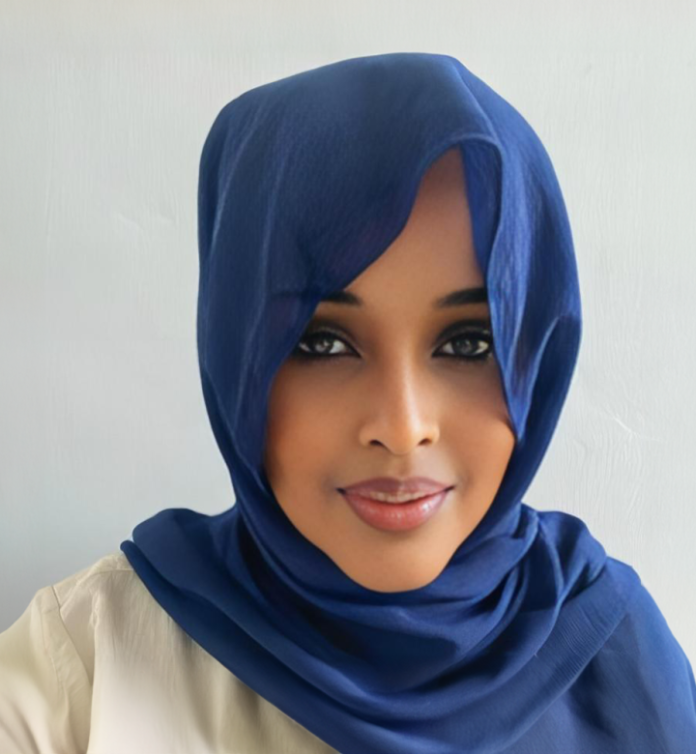I had a significant moment of reflection yesterday when an academic researcher reached out to discuss a study he was conducting on marginalized clans in Somalia. During our conversation, he used a term commonly used in Somali post-civil war discourse: “Dadkalagatirada badan yahay,” which translates to “Those who are fewer in number.” However, this seemingly innocuous phrase struck me as deeply problematic. It implies, without any empirical data or a national census to support it, that these clans are numerically smaller or less significant. In reality, no comprehensive demographic study has confirmed which Somali clans are indeed larger or smaller. Consequently, using this terminology is not merely descriptive; it serves as a powerful tool that reinforces historical power imbalances and perpetuates a misleading narrative that aligns with specific political and social interests.
Language transcends mere communication; it functions as a powerful instrument of influence, control, and societal shaping. In Somalia, the language surrounding marginalized clans is imbued with assumptions and biases that serve to fortify existing power structures. The term “Dadkalagatirada badan yahay” should not be viewed simply as an innocent descriptor. On the contrary, it can be interpreted as a linguistic mechanism that subtly undermines and disempowers already vulnerable groups. By categorizing these clans as ‘smaller,’ a damaging implication arises: that they are inherently weak, less significant, and devoid of political or social agency. Such a narrative, whether by design or oversight, contributes to their ongoing marginalization and serves as a classic example of how language is wielded to reinforce social hierarchies—favoring dominant groups while rendering others as peripheral and inconsequential.
Furthermore, the terminological landscape includes another phrase frequently deployed to characterize these communities: “Loomaooyaan,” which translates to “those who no one cries for.” This expression carries even darker connotations, suggesting that these groups are so marginalized that they lack any form of support, influence, or recourse for justice. The implication is that they are free to be harmed, exploited, or oppressed without fear of repercussion because no one will stand up for them or offer protection. This troubling notion starkly reflects the often brutal reality within Somali society, where justice tends to be a luxury reserved for those who bear arms, while those individuals and communities who have chosen the path of peace are left vulnerable and unprotected.
This language carries the weight of history, reflecting power dynamics that have evolved over time. It is essential to be cognizant of the origins and implications of these terminologies, as they reflect the narratives constructed by those who have historically held power. The individuals and groups responsible for coining such terms are often the same ones who have opted for violence in shaping the post-conflict landscape, which favors those willing to wield arms over those who have advocated for peaceful coexistence. Consequently, rethinking our terminology, becoming aware of its implications, and opting for language that accurately reflects the realities of these marginalized clans is crucial in dismantling the narratives that perpetuate their disenfranchisement.
Challenging the Narrative: A Call for a Shift in Terminology
The terminology we use to describe specific communities profoundly influences our understanding of their role in society. A more precise and respectful term for these groups would be “Dadkaaanhubkaqaadan,” which translates to “Those who did not bear arms.” This phrase is not merely a rebranding; it represents a crucial shift in the narrative surrounding marginalized clans in Somalia, moving away from vague, unverified assumptions about their population and toward a more nuanced discussion that highlights their historical agency, moral stance, and the stark realities of conflict in the region.
Historically, many of the clans categorized as marginalized did not take up arms during the Somali civil war. Their decision to refrain from violent engagement in the power struggles that have significantly shaped the nation’s troubled past left them in a precarious position. Without a stake in the violent struggle for supremacy, these communities became particularly vulnerable to violence and, ultimately, exclusion from socio-political discourse and resource allocation.
In stark contrast to existing terminology, the phrase “Dadkaaanhubkaqaadan” recognizes the intricate historical contexts of these communities. It accentuates their commitment to peace and showcases their resilience in the face of adversity, rather than framing them as insignificantly small or irrelevant. This term prompts a vital reflection: Should power be measured solely by numerical strength, or should it also encompass ethical conduct and constructive contributions to the broader society?
The Power of Language in Shaping Reality
Language serves as a potent instrument of power, historically wielded by dominant groups to shape perceptions and realities to fortify their control. In the context of colonialism, for example, European powers imposed derogatory labels on indigenous populations, which facilitated their subjugation under colonial rule. This pattern has persisted in post-colonial societies, where language continues to be manipulated by ruling elites to uphold their hegemony. In Somalia, this systematic use of exclusionary language has played a crucial role in maintaining a clan-based hierarchy that concentrates power in the hands of a select few while pushing others to the periphery.
The use of terms such as “Dadkalagatirada badan yahay,” meaning “those who are numerically small,” and “Loomaooyaan,” which suggests that “they are not worthy of lament,” is emblematic of this broader framework of linguistic manipulation. By propagating the false notion of numerical inferiority and implying that justice is reserved solely for those in power, these expressions legitimize the political exclusion and economic marginalization of certain clans. They perpetuate the perception that these communities lack the legitimacy to participate in governance or to claim their fair share of national resources. Transitioning to “Dadkaaanhubkaqaadan” is not merely a call for accuracy—it embodies a pursuit of justice. It seeks to reclaim the dignity and voice of those who have been systematically silenced throughout history.
Why This Matters?
While the act of changing terminology may appear trivial at first glance, its ramifications are profound. Words have the power to influence thought processes, and those thoughts can, in turn, shape actions and societal norms. If we persist in labelling certain groups as numerically insignificant, we inadvertently reinforce their marginalization and the cycles of oppression they experience. Continuing to employ terms like “Loomaooyaan” only serves to justify their exclusion from the justice system and from societal inclusion. Conversely, when we redefine these communities based on their moral convictions and historical realities, we pave the way for acknowledgment, inclusion, and equitable treatment.
Furthermore, this dialogue transcends the borders of Somalia. Marginalized communities worldwide face analogous challenges, where language is wielded as a means of exclusion. From indigenous peoples to various ethnic minorities, the nomenclature used to describe these groups often harbors hidden biases, exacerbating existing inequities and reinforcing systemic oppression.
Conclusion
It is imperative to confront and challenge the narratives that have been imposed on Somalia’s so-called marginalized clans. We must strive to move beyond misleading descriptors that obscure the truth of their experiences and adopt terminology that accurately captures their historical narratives and ethical realities. The transition from terms like “Dadkalagatirada badan yahay” to “Dadkaaanhubkaqaadan” reflects more than a mere semantic shift; it represents a vital struggle for justice, recognition, and the fundamental right for these communities to define their own identities. Similarly, rejecting the term “Loomaooyaan” serves to affirm the universal right of all communities to safety, justice, and dignity.
In the grand scheme, language serves as a battleground for power, and the reclamation of language through truth is the first essential step toward dismantling systems of exclusion. Let us commit to adopting words that honor reality and justice, rather than perpetuating myths that fuel injustice. By recognizing the value of language in shaping our understanding, we can foster a more just and equitable society for all injustices.
Shamso Sheegow
Author and student of Global Studies.
X @SpotonSomalia
The views expressed in this article belong to the author and do not necessarily reflect the editorial policy of Horn Broadcasting Network.


